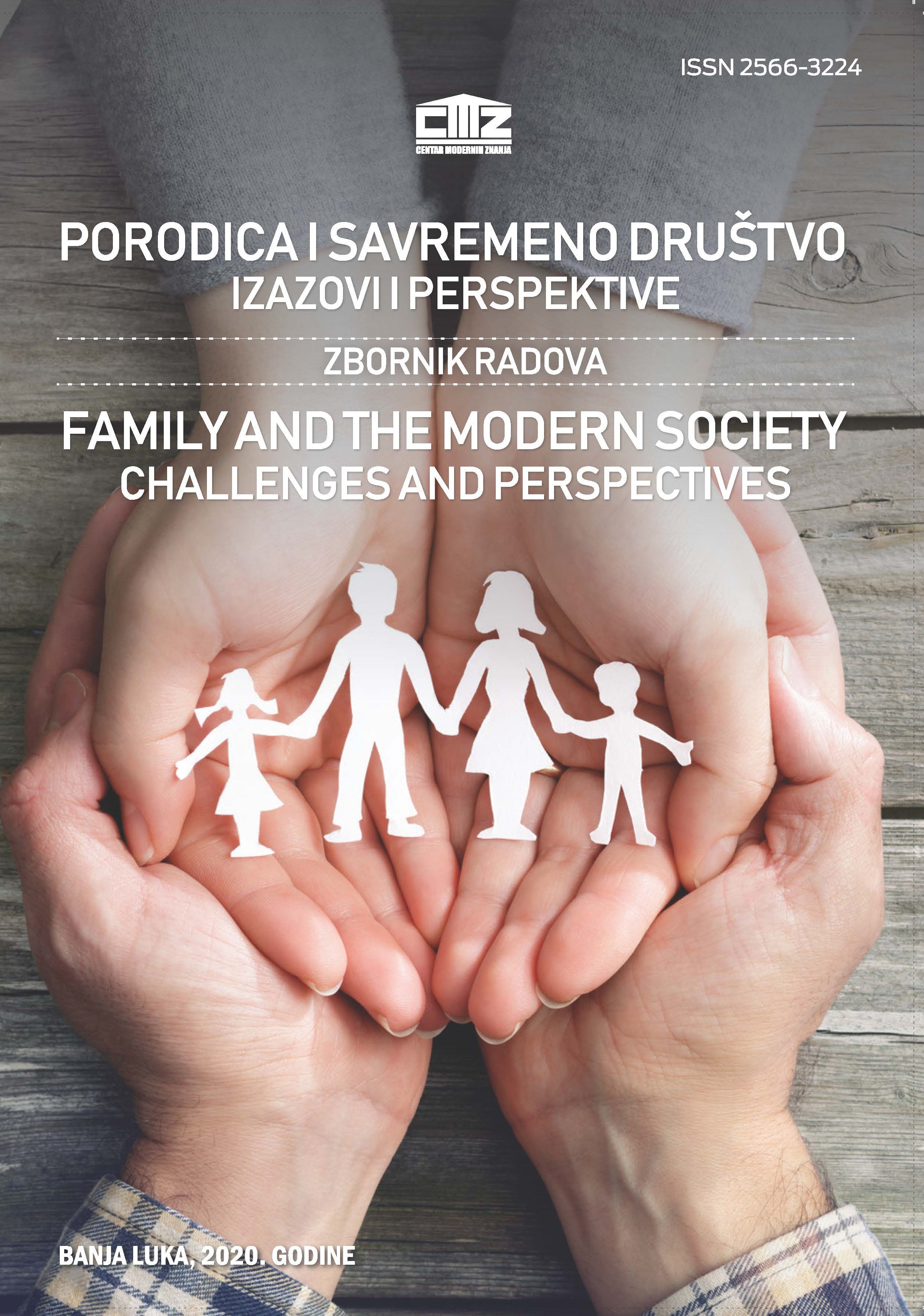ODNOSI IZMEĐU ČLANOVA U JEDNORODITELJSKIM OBITELJIMA I NJIHOV POLOŽAJ U DRUŠTVU
RELATIONS BETWEEN MEMBERS IN SINGLE-PARENT FAMILIES AND THEIR POSITION IN THE SOCIETY
Author(s): Gorana Bandalović, Kaselj Josipa, Zorana Šuljug VučicaSubject(s): Sociology, Social differentiation, Family and social welfare, Social Norms / Social Control
Published by: CENTAR MODERNIH ZNANJA
Keywords: single-parent family; sociological research; relations; prejudices; stereotypes;
Summary/Abstract: In the modern world, changes are an indispensable part of the society we witness on a daily basis. As such, they have not bypassed the family that has emerged from its traditional forms, and many alternative forms have formed during the transformation process. A family in which one parent is present, regardless of the reason for the absence of the other, is often referred to in the public as incomplete or truncated family. This study examines whether individuals living in single-parent families, as parents or as children, feel incomplete or think that there are more other important segments that make up the family without emphasis on traditionally predetermined family structure or numerical value. The aim of this paper is to examine the relationships between members in single-parent families and their position in contemporary society. This paper presents the results of the research conducted using a semi-structured interview method on a sample of twenty interlocutors, members of one-parent families. Ten mothers and ten adult children (seven daughters and three sons) were interviewed. The survey was conducted during June, July and August 2019 in the area of Split-Dalmatia County. According to their opinions, single-parent families are still susceptible to prejudice and stereotyping by "different" members of society. Half of the mothers surveyed and one third of the children surveyed feel negatively labeled and condemned by the surrounding environment. Most interviewees point out that the absence of the other parent has to some extent influenced the formation of the identity of children in single-parent families, but that this does not make them incomplete. Children are generally satisfied with their position among peers, although they find that they have more responsibilities in the household than their peers from two-parent families. On the other hand, mothers show some degree of dissatisfaction with their position in society. As the number of single-parent families is increasing and the reasons for their emergence are diverse, society is learning to embrace such forms of family. Therefore, it is necessary to eliminate prejudices and give the opportunity to one-parent families to prove that they are also full of love and mutual support, just like families with two parents.
Journal: DRUŠTVENE DEVIJACIJE
- Issue Year: V/2020
- Issue No: 5
- Page Range: 119-130
- Page Count: 12
- Language: Croatian

